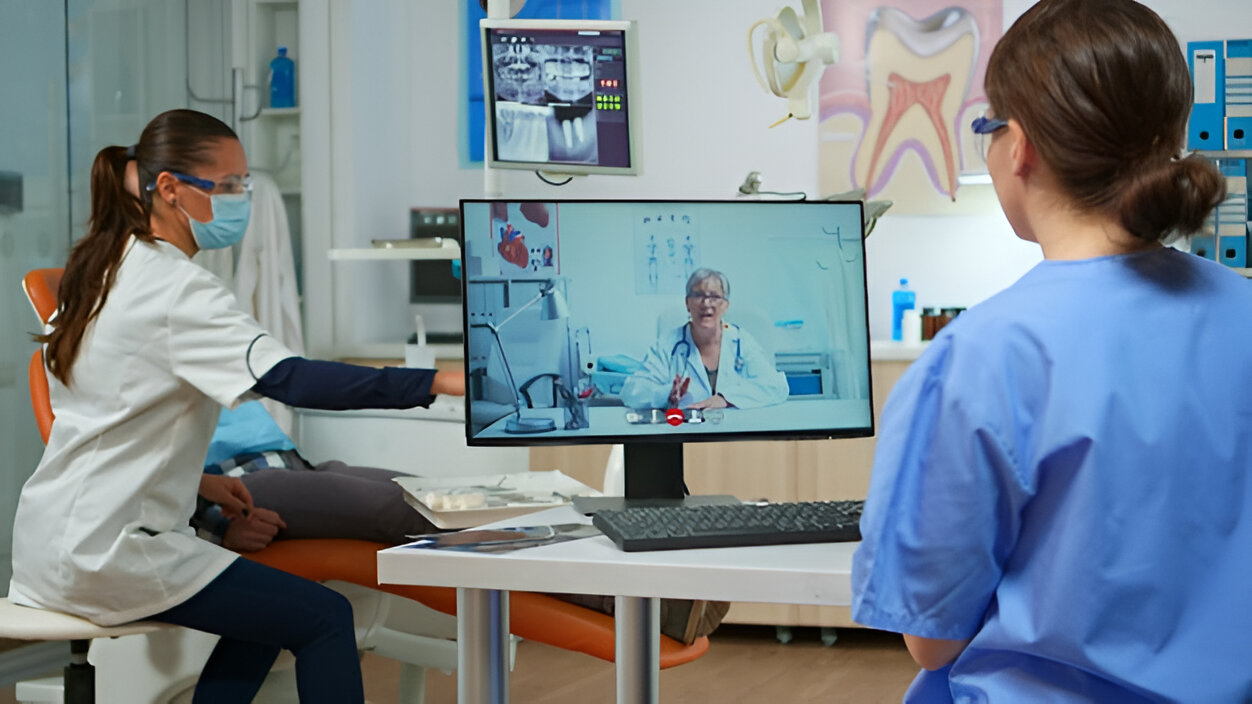In today’s fast-paced and digitally driven healthcare landscape, the need for efficiency, accuracy, and responsiveness is more crucial than ever. With rising patient volumes, increasing administrative tasks, and growing expectations for around-the-clock care, healthcare providers are constantly seeking innovative ways to improve their workflows. This is where virtual medical assistants (VMAs) come into play.
Virtual medical assistants are transforming how practices manage patient interactions, administrative functions, and back-office operations. By leveraging advanced technology and skilled remote professionals, medical practices can streamline operations, reduce overhead costs, and enhance the patient experience. In this article, we’ll explain what virtual medical assistants are, their key benefits, and how virtual medical assistant services are being used across the healthcare industry—including their role in medical billing services.
What Is a Virtual Medical Assistant?
A virtual medical assistant is a remote professional trained to support healthcare providers with both administrative and clinical tasks using digital tools. They work off-site but are integrated into the daily operations of medical practices through internet-based communication platforms, electronic health records (EHR) systems, and task management tools.
Unlike traditional in-office assistants, virtual medical assistants offer flexibility and scalability while covering a wide range of responsibilities. These can include scheduling, patient communication, medical transcription, medical billing services, and more.
Core Responsibilities of Virtual Medical Assistants
- Appointment scheduling and confirmation
- Answering patient queries via phone, email, or chat
- Managing patient intake and forms
- Transcribing physician notes
- Verifying insurance information
- Handling medical billing services and coding
- Managing EHR data entry and updates
- Follow-ups and virtual check-ins
Key Benefits of Virtual Medical Assistants

1. Reduced Administrative Burden
One of the most significant benefits of using virtual medical assistant services is the dramatic reduction in administrative workload. Doctors and in-office staff often spend a substantial portion of their day on tasks like scheduling, billing, and data entry—taking valuable time away from direct patient care.
By outsourcing these tasks to trained virtual assistants, your practice can focus on what matters most: improving health outcomes. VMAs can take over repetitive and time-consuming responsibilities, allowing in-house staff to concentrate on clinical work.
2. Cost-Effective Staffing Solutions
Hiring full-time, in-house staff can be expensive. You need to consider salaries, benefits, office space, equipment, and training. On the other hand, virtual medical assistant services offer a cost-effective alternative. Since VMAs work remotely, overhead costs are reduced significantly.
This makes them especially valuable for small to mid-sized practices looking to improve efficiency without stretching their budget. You only pay for the time and tasks you need, which makes the return on investment particularly attractive.
3. Increased Productivity and Efficiency
Virtual medical assistants are focused solely on their assigned tasks without the interruptions that often affect in-office staff. This singular focus allows them to complete tasks more quickly and accurately.
VMAs also bring structure and consistency to your practice’s operations. From processing insurance claims to updating medical records, they ensure each step is handled efficiently and in a timely manner.
4. Enhanced Patient Experience
Patients appreciate quick responses, timely appointments, and clear communication. Virtual medical assistants play a critical role in delivering this level of service.
With VMAs handling tasks like follow-up calls, appointment confirmations, and patient reminders, your patients receive timely information and feel more connected to your practice. This boosts patient satisfaction and encourages loyalty.
5. 24/7 Availability and Flexibility
Many virtual medical assistant services offer around-the-clock support, enabling your practice to extend its operational hours without overworking your in-office staff. This is particularly valuable for urgent care providers, telehealth services, or clinics that deal with patients in different time zones.
Flexibility is another key advantage. VMAs can be brought on for short-term projects, seasonal spikes in workload, or to cover employee absences.
Use Cases for Virtual Medical Assistants

1. Appointment Scheduling and Patient Reminders
Missed appointments can cost practices thousands of dollars annually. Virtual assistants can manage scheduling and send automated reminders to reduce no-shows.
2. Medical Transcription and Documentation
Physicians can dictate notes, and VMAs transcribe and input them directly into the EHR. This streamlines the documentation process and ensures accuracy.
3. Insurance Verification and Medical Billing Services
Virtual assistants trained in medical billing services can verify patient insurance before appointments, manage claims submissions, and handle denials or rejections. This improves revenue cycle management and reduces the risk of lost revenue.
4. EHR Management and Data Entry
Accurate and up-to-date patient records are vital for delivering quality care. VMAs ensure that EHRs are consistently updated with the latest data, including test results, patient history, and physician notes.
5. Virtual Patient Follow-Ups
VMAs can reach out to patients post-treatment or after hospital discharge to check on recovery progress, remind them of medication schedules, or confirm follow-up appointments.
Who Can Benefit from Virtual Medical Assistant Services?
Private Practices and Clinics
Smaller practices often lack the staff needed to manage growing administrative demands. VMAs help bridge this gap efficiently and affordably.
Telehealth Providers
Virtual assistants are a natural fit for telehealth services, as they are already accustomed to working remotely and managing digital workflows.
Hospitals and Specialty Care Centers
Larger facilities use VMAs to manage high volumes of data and administrative work, ensuring nothing falls through the cracks during busy periods.
Mental Health Professionals
From appointment scheduling to insurance verification, VMAs allow therapists and counselors to focus more on patient interaction and care.
How to Hire a Virtual Medical Assistant

1. Define Your Needs
Before hiring, determine which tasks you want to outsource. Whether it’s scheduling, EHR management, or medical billing services, clarity helps you find the right candidate.
2. Choose a Reputable Service Provider
Work with companies that specialize in virtual medical assistant services and have experience in the healthcare industry. Look for client reviews, industry certifications, and a strong onboarding process.
3. Evaluate Skills and Experience
Check for specific qualifications like experience with EHR systems (e.g., Epic, Cerner), knowledge of medical terminology, and prior experience in medical billing services if needed.
4. Ensure Compliance and Data Security
VMAs handle sensitive patient data, so it’s essential that they follow HIPAA guidelines and other relevant privacy regulations. Reputable providers will ensure their assistants are trained and compliant.
5. Set Clear Expectations and KPIs
Set clear goals and key performance indicators (KPIs) to monitor the effectiveness of your virtual assistant. Regular check-ins and performance reviews help maintain quality and accountability.
Conclusion
As the healthcare industry continues to embrace digital transformation, virtual medical assistants are becoming an indispensable part of modern medical practice. Their ability to streamline operations, cut costs, and enhance patient experiences makes them a smart investment for healthcare providers of all sizes.
Whether you need help with administrative duties, patient communication, or medical billing services, virtual medical assistant services offer scalable and efficient solutions tailored to your needs. By partnering with skilled and trusted VMAs, you empower your practice to operate more smoothly, serve patients better, and stay ahead in a competitive healthcare environment.
The future of healthcare is virtual—and virtual medical assistants are leading the way.

